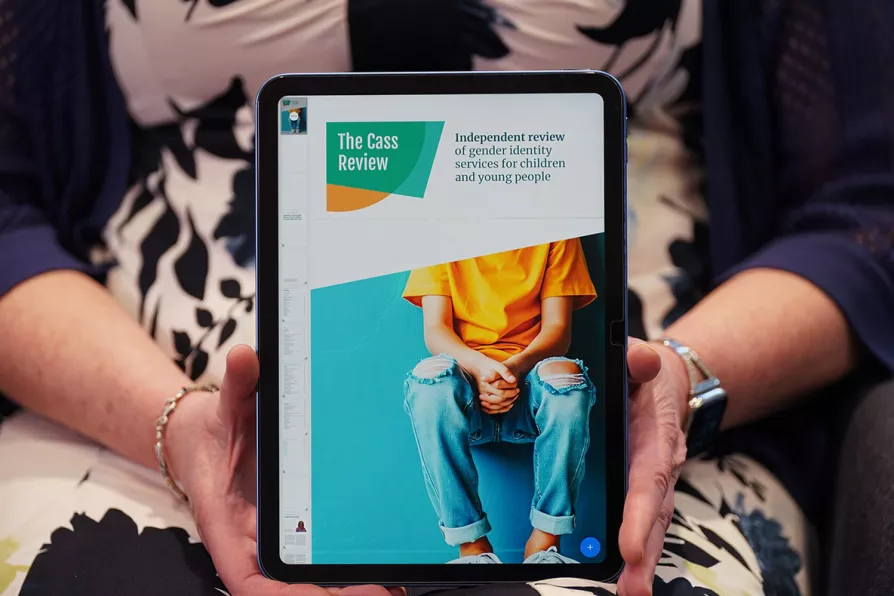
 Retired consultant paediatrician Dr Hilary Cass speaking about the publication of the Independent Review of Gender Identity Services for Children and Young People (The Cass Review) at the PA Media offices in west London, April 9, 2024
Retired consultant paediatrician Dr Hilary Cass speaking about the publication of the Independent Review of Gender Identity Services for Children and Young People (The Cass Review) at the PA Media offices in west London, April 9, 2024
HEALTH Secretary Victoria Atkins told NHS England today it must end the “culture of secrecy and ideology over evidence and safety” on treatment for gender dysphoria.
Ms Atkins’s intervention comes amid fallout from the Cass Review into gender care published earlier this week, which concluded that children have been let down by treatments, including use of puberty blockers and hormones with unknown effects, and that the sharp increase in numbers of people, especially girls, presenting with gender dysphoria should be considered in a context of growing instances of poor mental health and emotional distress among adolescents.
Dr Hilary Cass criticised adult gender clinics for refusing to co-operate with requests for data on patient outcomes for approximately 9,000 people who had moved from the now-closed GIDS children’s treatment centre into adult clinics, and Ms Atkins said their attitude was “disgraceful.”

When privatisation is already so deeply embedded in the NHS, we can’t just blindly argue for ‘more funding’ to solve its problems, explain ESTHER GILES, NICO CSERGO, BRIAN GIBBONS and RATHI GUHADASAN












